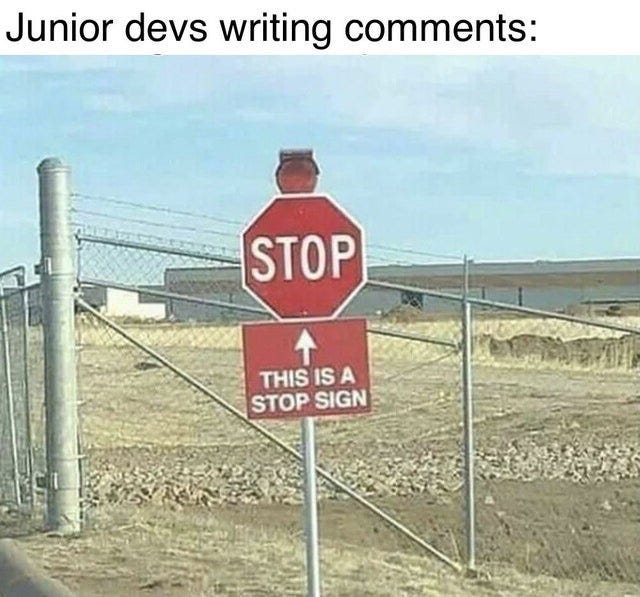Bitcoin Tech Talk #351
Interesting Stuff
Why Bureaucracies Degenerate - Amazing article showing exactly how government bureaucracies end up not achieving their intended goals. Essentially the incentives of bureaucrats become terribly misaligned and rules don’t get updated often enough that everything runs very, very badly. The article is fairly sympathetic to the bureaucrats themselves, and I think that’s really the main shortcoming of the article. There are power games at play here that occur in any political environment, which the article largely ignores. Still, the article is very enlightening in how these bureaucracies end up being so incredibly wasteful.
Stop Caring About Grades - Paul Graham wrote this article 4 years ago, but the article holds up very well. The main idea is that most tests are easily hackable and instead of actually learning the topic, most students learn how to hack tests. The one obvious blindspot for Paul is his treasured VC realm where the tests are very obviously hackable (WeWork, Theranos, FTX, among others), but he seems completely oblivious to that possibility. The presenting symptom is that the tests are hackable, but the underlying problem is that there’s trust placed in authorities that aren’t very good at evaluation. We really need to separate these two functions and make them market-based to make evaluation more effective.
The Competence Crisis - Lots of stuff are starting to break and won’t get repaired soon. This is what de-civilization looks like and as this author points out, a large part of this is the emphasis on diversity. The lack of competence is directly the result of a priority other than merit in these functions and when we have a less meritocratic system, stuff breaks. I would add that the prioritization of anything other than merit is inevitable in a fiat system and that diversity just happens to be the thing that the US focuses on to merit’s detriment. Other countries focus on other values, but no matter what, if merit is not the primary driver of a market, it’s doomed to collapse.
What I'm up to
Austin Bitcoin Club - I will be speaking about my experience traveling and meeting Bitcoiners all over the world on Thursday July 6 at Bitcoin Commons. I will be covering hyperinflation, the dollar hegemony, US monetary imperialism and a lot more. You can reserve your spot using the link (it’s free) and hang out with us.
Sauna and Cold Plunge - Since returning from travel, I knew I needed a new workout routine and being as sore as I am, I’ve also started doing the hot/cold contrast with 150 degree saunas and 45 degree cold plunges. If you’re in Austin, we’re trying to make cold plunge/sauna a regular thing among Bitcoiners. Write in if you’re interested!
Bit Block Boom - I’ll be at Bit Block Boom in August! I’ll be speaking and signing books, so please stop by if you’re attending! I’m also thinking about some sort of lunch or dinner for subscribers to this newsletter. Let me know if this is something you’re interested in doing.
Nostr Note of the Week
What I’m Shilling
Unchained Capital is a sponsor of this newsletter. I am an advisor and proud to be a part of a company that’s enhancing security for Bitcoin holders. If you need multisig, collaborative custody or bitcoin native financial services, learn more here.
Bitcoin
BIP39 Colors - This is an interesting approach to store your seed phrase, that is by using colors. Each color on the web is 24 bits of information, and each word is 11 bits, so a 12 word mnemonic would be 6 colors, but 2 additional colors encode the word order, making the colors not require any ordering. I’m not sure how useful this is, but the idea of encoding a phrase in such a way as to not require ordering is very interesting and something that could be useful for UX.
Schnorr Explained - An excellent post on the math behind Schnorr signatures. Unfortunately, it’s not really accessible until you learn elliptic curves and finite fields (you can learn both in my book Programming Bitcoin). The main benefits of not having to calculate the multiplicative inverse are explained and the ability to aggregate both signatures and pubkeys using something like MuSig is also explained.
Criticism of BitKey - The article comes from a biased source (CEO of a competing hardware wallet company), but I’ve had similar questions about the BitKey product. It’s not entirely clear to me what the benefits of BitKey are beyond a normal phone wallet from a user perspective. If you can’t check the transaction on a separate, offline device, what’s the point? That’s what this post explores fairly thoroughly and explains the rationale behind why you really need a screen. There’s also a good deal of info about the architecture of the device and the servers that collect your information. I would love to see some sort of response by the folks at Block about this.
Payjoin Dev Kit - Along the lines of BDK and LDK, this is a new API library for performing PayJoin transactions. Essentially, there’s a central coordinator server that you can run as a PayJoin operator that lets you add privacy in various different ways. The post is great for showing what the potential use-cases for PayJoin are, including cut-throughs and more efficient lightning channel openings.
Lightning
VLS Audit - On the heels of the new release of VLS, Antoine Riard has published a comprehensive audit of the Validating Lightning Signer project and he’s found a bunch of vulnerabilities. The report is an excellent summation of things that any lightning signer should be looking to make certain of. Note that Antoine did alert the team and they’ve been committed to addressing all of the vulnerabilities that have been found. I would honestly like to see thorough reviews like this for all the different Lightning projects and their components.
CivKit Early Release - CivKit is the lightning and Nostr-based peer-to-peer market and we now have some code that we can run to play with it. The speed with which this is getting developed suggests that there are some committed people on this project and we’ll see if this becomes the decentralized marketplace that people have been looking for. As it stands such marketplaces tend to run on TOR, but software like this could potentially replace the anonymous centralized versions which get taken down every few years.
Surge - For routing nodes, there’s a big need to see the data around the channels of a node so it can be optimized. Sometimes, though, you want to just see the data and analyze it and not change it. That’s the idea behind Surge, released to all users by Voltage, which lets you see how the node is doing, without giving you access to change the node behavior. In that sense, it’s a lot like putting in an npub into a Nostr client. I would love to see this product open sourced and for nodes to publish their Surge so other operators can learn how to run their nodes well.
Economics, Engineering, Etc.
Microstrategy Stacking - Michael Saylor continues to add to his company’s considerable stack, now holding over 150k BTC. What’s remarkable is that he raised this money by issuing new shares of MSTR. In the absence of a spot ETF, his company shares are becoming an excellent proxy. What this suggests to me is that there’s significant enough institutional demand that perhaps they’re letting Saylor know that they’d buy newly issued shares if that money goes directly into BTC purchases. We might not need an ETF after all.
FTX and China - This article puts to bed the oft-told story that Sam Bankman-Fried made his money from the Kimchi premium (or the Japanese equivalent) and suggests that the real source of FTX was from China. As the article states, the company was in dire straits back in 2018 when a couple of high profile investors bailed on them. They proceeded to get high interest loans, and when those loans were due, take out new ones to pay them off. They were a Ponzi from the beginning.
Kraken and IRS - Kraken has to turn over user information for anyone that traded at least $20k in any single year from 2016 to 2020. This is reminiscent of the Coinbase treasure hunt from years earlier. It does seem like there’s going to be a lot of IRS agents scouring this stuff as part of a broader “crypto” crackdown. Perhaps a peer-to-peer marketplace will gain more market share going forward (see the first story in the next section).
Quick Hits
Bitfinex launches p2p BTC marketplace - I think of this as localbitcoins 2.0, and given how well they’re doing with Tether, such an expansion makes a ton of sense.
MicroBT manufacturing in US - For many years, the mining manufacturing game has been head-quartered in China, but this seems to indicate that at least some manufacturing is moving to the US.
Intro to Simplicity - Nice intro to this alternative VM
UX Toolkit for BTC - There are some great best practices for Bitcoin Wallet UIs here
Fiat delenda est.









